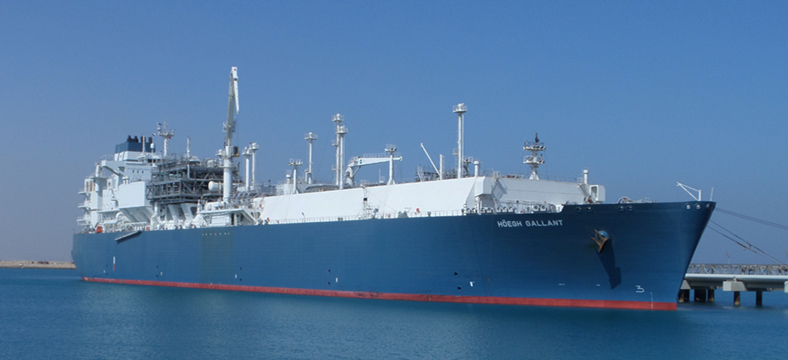Egypt Buoys Hoegh LNG 1Q Volumes
Norway-based shipowner Hoegh LNG reported an after-tax net 1Q 2016 profit of $6.3mn on May 27, up from $4mn in the year-ago quarter.
Average regasification flow rate at its five floating regas ships (FSRUs) – all of which were fully employed – nearly tripled compared with the same 2015 quarter, thanks to increased imports driven by ample supplies of LNG being available at low prices.
One such ship Hoegh Gallant started imports in April 2015 at Ain Sukhna on Egypt’s Red Sea coast, so is believed to have been a key factor in Hoegh’s higher year-on-year throughput; the FSRU is on long-term charter to Egyptian state Egas.
Egypt became an LNG importer for the first time in 2015 and – through Egas - imported 2.6mn metric tons that year, 1% of world LNG trade. Hoegh Gallant was Egas's first FSRU to start operations in April; a second FSRU chartered from rival shipowner BW Gas started operations in autumn 2015.

Hoegh Gallant FSRU (Photo credit: Hoegh LNG)
Hoegh LNG now has a sixth FSRU built, Hoegh Grace, which is expected to start operations as an import terminal in Colombia in 4Q 2016 and which in the meantime is operating as an LNG carrier. A seventh FSRU is expected to be built by March 2017 but is not yet earmarked to a particular country.
In mid-February 2016, Hoegh LNG decided to put its Floating LNG (FLNG) development activities on hold and booked a $37mn impairment charge for the cost of studies during 1Q. Given the current global LNG supply glut, FLNG – as opposed to regas and storage – is seen as a tough business sector for shipowners and developers alike – as illustrated by Schlumberger’s exit a month ago from Ophir’s planned Equatorial Guinea FLNG project. The latter, which involves Golar as FLNG ship provider, is now not expected to make its first shipment until early 2020, rather than 2019 as was originally scheduled.
Mark Smedley


